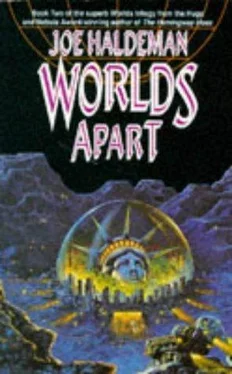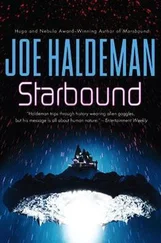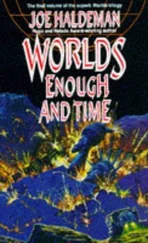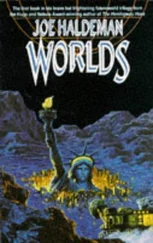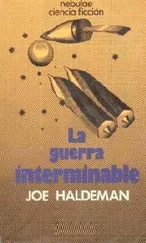Fortunately, there weren’t many who were true Mansonite believers. There was no other religion, though, that Jeff might exploit to keep them in line. His own American Taoism was too gentle and subtle to have much effect on them. He toyed with the idea of making up a religion, a notion that had occurred to him before. His white hair and beard grown long and wild, he did look like an Old Testament prophet, and a lot of the younger ones treated him with tonguetied awe. He couldn’t marshal enough cynicism for it, though.
Finally he settled on just getting things somewhat organized. He picked a dozen boys and girls who seemed to have leadership potential, and made them “house leaders,” naming their houses after signs of the zodiac. Then he took Storm’s census and assigned each house twenty-three or twenty-four people, more or less randomly, preserving the two-to-one male/female ratio. He instructed the house leaders to select four people out of their groups to be assistants, each responsible for a “unit” of five or six people. It was simple military-style organization, company-platoon-squad, but he didn’t want to use the military names.
As a test of his authority, it was successful. People grumbled about being separated from friends and sex partners, but they went along with it. (The separation wasn’t profound, anyhow; houses only got together physically for meetings, and people continued to live wherever they’d cleared a space.)
There were four others besides Jeff and Storm and Tad who could read and write fairly well. They were made teachers and taken outside of the loose power structure, and freed of work details. Jeff set up a class schedule by house, requiring everybody who was old enough to spend two hours a day learning fundamentals. Skipping class meant four hours of extra work; malingering at work put you in Storm’s jail for a day, with no food.
Jeff knew enough about child psychology not to be too surprised at the initial enthusiasm they showed, but he wasn’t sure what to do next, when the novelty wore off. Tad suggested they reinvent money. People would be rewarded for good performance in class, and with their money they could buy their way out of work details. Jeff could see the sense of it, but he hesitated, having known since childhood that money was intrinsically evil. It seemed a pity, since they were in a small way rebuilding society, to knowingly corrupt it from the very beginning. But he finally gave in. They had already begun commerce, trading a worthless refrigerator for priceless animals. As the people to the north grew older, there would be more and more contact. Better trade than war.
He brought together all of the teachers and house leaders and explained the setup. They worked out a table of various equivalences between class credits and work credits—watching a fishing line was not worth as much as scraping paint—and, foreseeing trouble, set up a review system, so that people who thought they had been unfairly treated could bring their case to Healer or Storm.
It took quite a while. Tad drew a couple of hundred credit bills, which Storm and Jeff signed. They locked them up in the jail’s armory.
In six days he created school, jobs, money, courts, and banks. On the seventh day he went fishing.
1 
It was a busy, exciting couple of years, watching the good ship Newhome grow. I went up to the hub to look at it only once each month, so my eye’s memory of it is a steady progression from the simple torus of Uchūden, through the spidery framing skeleton, to the kilometers-long cylinder of rock we’re moving into now. Of course the progress wasn’t steady, as I knew from my husbands’ constant enthusiastic bitching. But I was so busy with my own end of it that I didn’t have any time to worry about theirs.
The work was far from over after I’d selected the ten thousand settlers. For one thing, the list was constantly changing as people reconsidered or acquired new spouses or inconveniently died—or managed to pressure someone into pressuring me into letting them aboard. Also, I was supervising what amounted to a crash program with the ten hypnotic induction machines. We wanted to do four hundred HI pairs before we leave next year, and the actual induction procedure is only part of the retraining process. Information isn’t enough. It wouldn’t do us much good to have a fanatical elephant trainer aboard if we forgot to bring along his elephant.
The Entertainment Director job is complicated for the same reason. We’ll have a duplicate of New New’s library, so there won’t be any shortage of books, movies, and so forth. But there are thousands of other items people need to keep from being useful all the time. I sent out a general request for entertainment suggestions from all the settlers, and got a quarter of a million responses. The computer reduced the list to 2,436 things, cancelling duplicates, and it was my job to go through it and evaluate which we should and could take along. A couple of thousand people listed balls and gloves for handball; no problem. But what about the three who were light sculptors? The equipment weighs as much as a large floater. And every violinist suggested we bring along New New’s only Strad. Somehow I don’t think we’re going to get it.
Which brings up the problem of sentimental attachment. I’ve been playing the same clarinet since I was nine years old. Haven’t had much time to practice in the past few years, but that will change.
That clarinet is special. It’s a century-old Markheim, bored out for jazz, the only one in New New. I carried it to Earth before the war and got it back intact. But it’s not “mine”; there are seven other people who use it, most of them more than I do, and only two of them will be in Newhome .
I’ll be able to appropriate it, and selfishly will. But there are 9,999 other people who are attached to things that will probably be left behind.
I also have to anticipate people’s entertainment needs. Newhome ’s demographics will be heavily skewed toward the elderly as the trip goes on. More chess, less handball. There’s also the problem of replacing things as they wear out. Clarinet reeds, for example, are easy; they can be cut from plastic stock (though they’ll never be as good as the bamboo ones I used on Earth). Other things will require more ingenuity. No leather or natural rubber for handballs. No red sable for watercolor brushes, or natural pigments for their paints.
But these things will only be worrisome in the short run. Eventually we’ll invent our own arts and crafts and sports, appropriate to the ship’s environment. The next generation will probably reject many of our pastimes as old-fashioned (and the one after that will embrace them out of nostalgia).
I’m working with, and occasionally locking horns with, my counterparts in the arts and humanities. We’re all vying for the same precious tonnes of mass and cubic meters of storage. They’re both preoccupied, it seems to me, with taking along artifacts of Earth culture. If they had their way they’d empty out New New’s museum, lock, stock, and dinosaur bone. I’m fascinated with these things myself, and probably have more emotional attachment to them than they do. But we have to be realistic. Even if we could cull all the treasures of Earth, we’d do best to leave them be. The computer can reproduce the Mona Lisa down to the last brush stroke; give us a solid cubeshot of Winged Victory from any angle. I know it’s not the same—after all, I’ve seen them. But it will have to do. Every kilogram of souvenirs means one less kilogram of redundancy in life systems. Michelangelo we will always have with us, in a matrix of charmed hadrons. But if all our mung beans die we can’t send out for more.
Читать дальше
